

WhenTikTok WentDark:
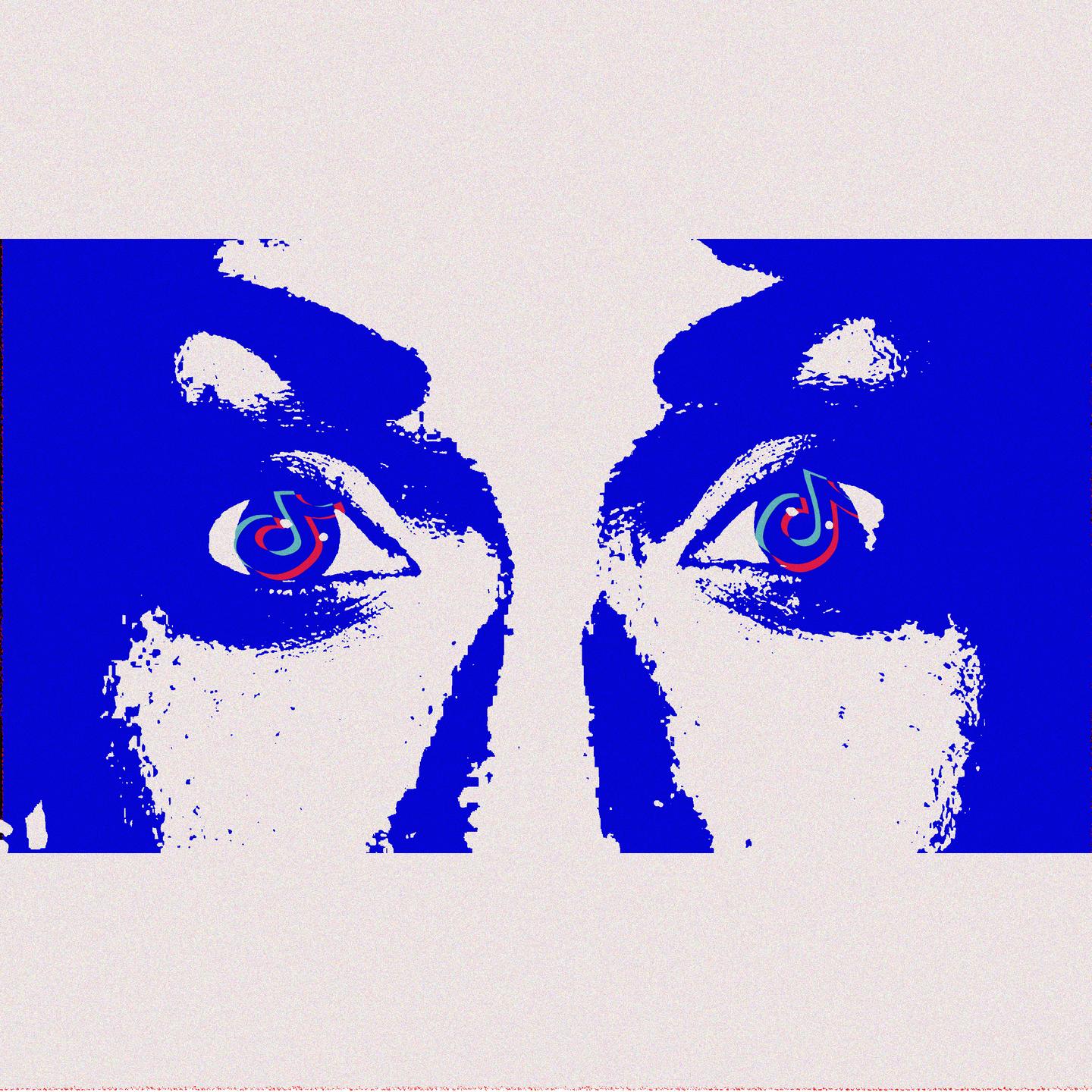


Inside The Blackout
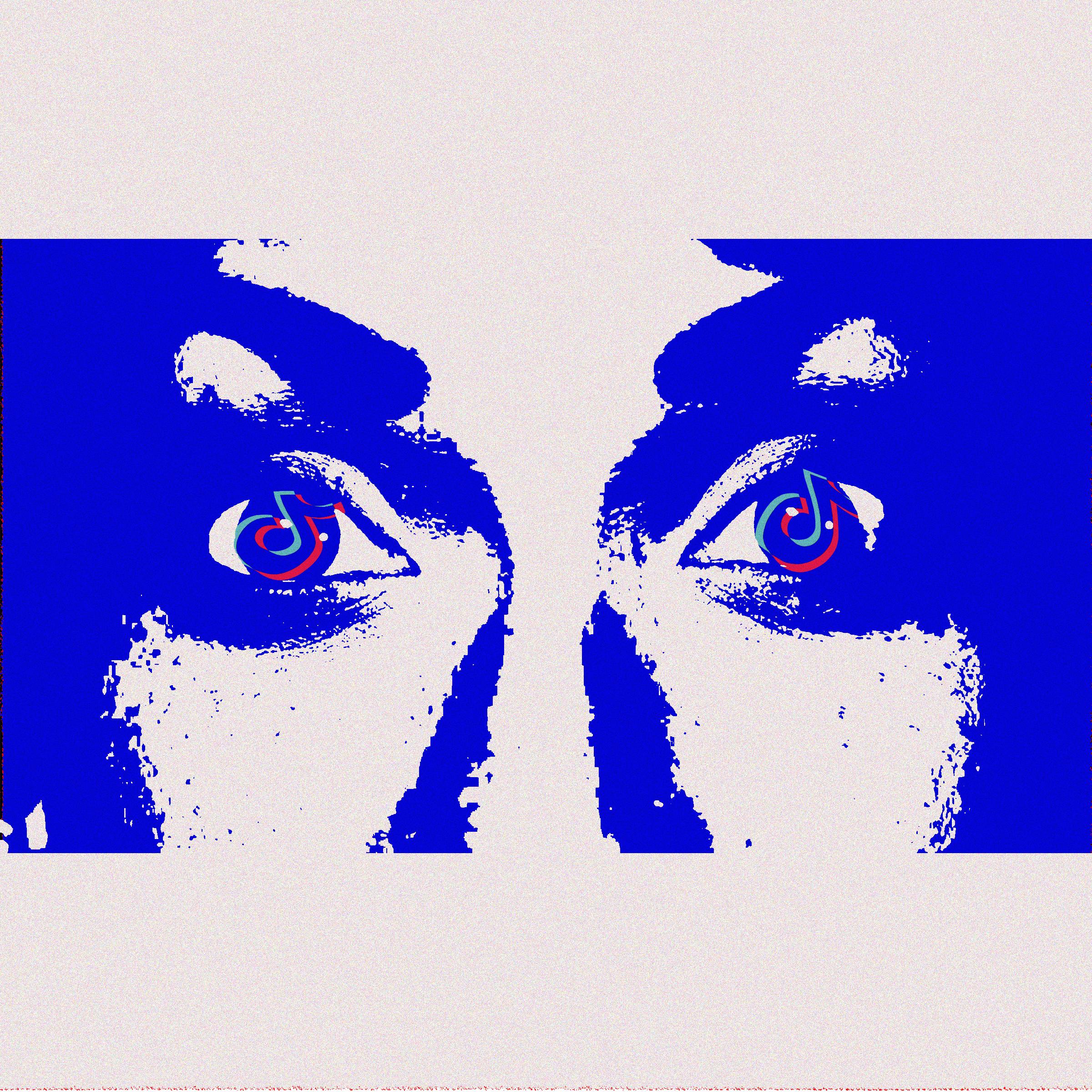
Why TikTok Is On Top 2. The Algorithm Gods a. The Search Engine: Google, Who? b. Life (Raw Version) c. Community and Connection: Where Marginalized Voices Thrive
d. TikTok as a News Source: The People’s Platform e. The TikTok Ban: A Wake-Up Call 3. Beyond TikTok & The Future of Social Media Marketing 4.


When TikTok Went Dark: What
It Reveals About Gen Z, Trust, and The Future of Social Media
In January, TikTok was banned for a few hours, and many of us crashed out. It’s back (for now), but that brief shutdown sparked a much bigger conversation: What does TikTok’s grip on Gen Z reveal about our relationship with social media?
Beyond the panic, the ban forced us to confront some hard truths about TikTok’s influence and what brands need to understand if they want to stay relevant in a post-TikTok world.

So, we turned to the Koi Pond to get their unfiltered thoughts on the ban, the trust factor, and what features a new app would need to even come close to competing with TikTok.

Why TikTok Is ����
If you think TikTok is like any other social media app, then you’re either confused or your name is Mark Zuckerberg. 73.7% of respondents use TikTok, with 60% spending more than an hour on the app every day. TikTok isn’t just part of our routines it is the routine. But what exactly makes it so successful with Gen Z?
Do you currently use TikTok?
On average, how much time do you spend on TikTok per day?



The Algorithm Gods
TikTok’s algorithm is him. It’s the number one reason respondents said no other app can touch TikTok. While Instagram and X (we still want to call it Twitter) leave us in a limbo of ads, random content, and recycled trends, TikTok just gets us. Like, how does it know I want to deep dive into frogcore at 2 a.m.?
“The algorithm is unique to TikTok. Another app would have to match the algorithm, offer opportunities to everyone, limit ads, and stay neutral where possible.” Kendra
“Just having videos that are targeted towards you like the algorithm on tik tok was so good it was like spot on.” -Maria
On top of all the algorithmic benefits users get, TikTok also levels the playing field for creators. You don’t need millions of followers to go viral. The algorithm amplifies quality content, giving smaller creators a real shot at breaking through.

The Algorithm Gods
A few years ago, Instagram shifted from a follower-based feed to a new algorithm that mixes content from the people you follow, ads, random content, ads, ads, and more ads. They left us in a weird in-between where we’re not getting what we wanted from Instagram (seeing our friends’ posts) but also not being fed content that clicks with us.
TikTok, on the other hand, feels like a bestie who knows all our hyperfixations and late night thoughts. Of course we’re aware the algorithm is made by reading our data, but every app does this (which Gen Z has largely accepted), so if you’re going to take my data at least give me something good.
For You Shop Following Explore
“I feel like Reels and Shorts are pretty close, but they don’t really have the same algorithms, variety of audios, etc” -Grace
“It's an insanely predictive algorithm that connects me to what I want to see within minutes of scrolling, and introduces me to new people, communities, and creative outlets. I especially love it for its book recommendations.” -Vincent
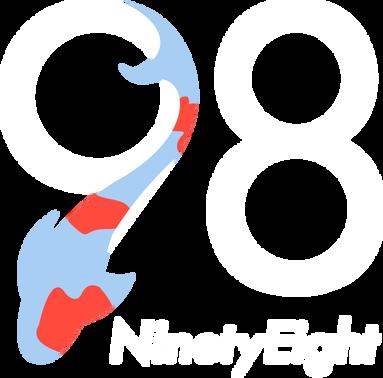


The Search Engine: Google, Who?
Suggested Results
“Whenever I need to find out about something (literally anything), the first thing I do is search on TikTok.”
—Stephanie
TikTok is increasingly being used as a search engine. Need a life hack? Fashion inspo? Relationship advice? You can get literally any information on there and the best part is that it’s coming from real people who can provide a more personal take AND you can interact with them. There are soon-to-be brides sharing their vendor list, internet dads teaching people how to fix a light bulb, people sharing step by step how-tos on literally everything.
Why would I go to Google to figure out how to fix my broken Owala when I can hop on TikTok and find a tutorial from someone who’s been through the struggle? (BTW, the fix was tightening the spring...and yes, I sat on it, and it worked.) Google just doesn’t come through with niche, real-life solutions like that.
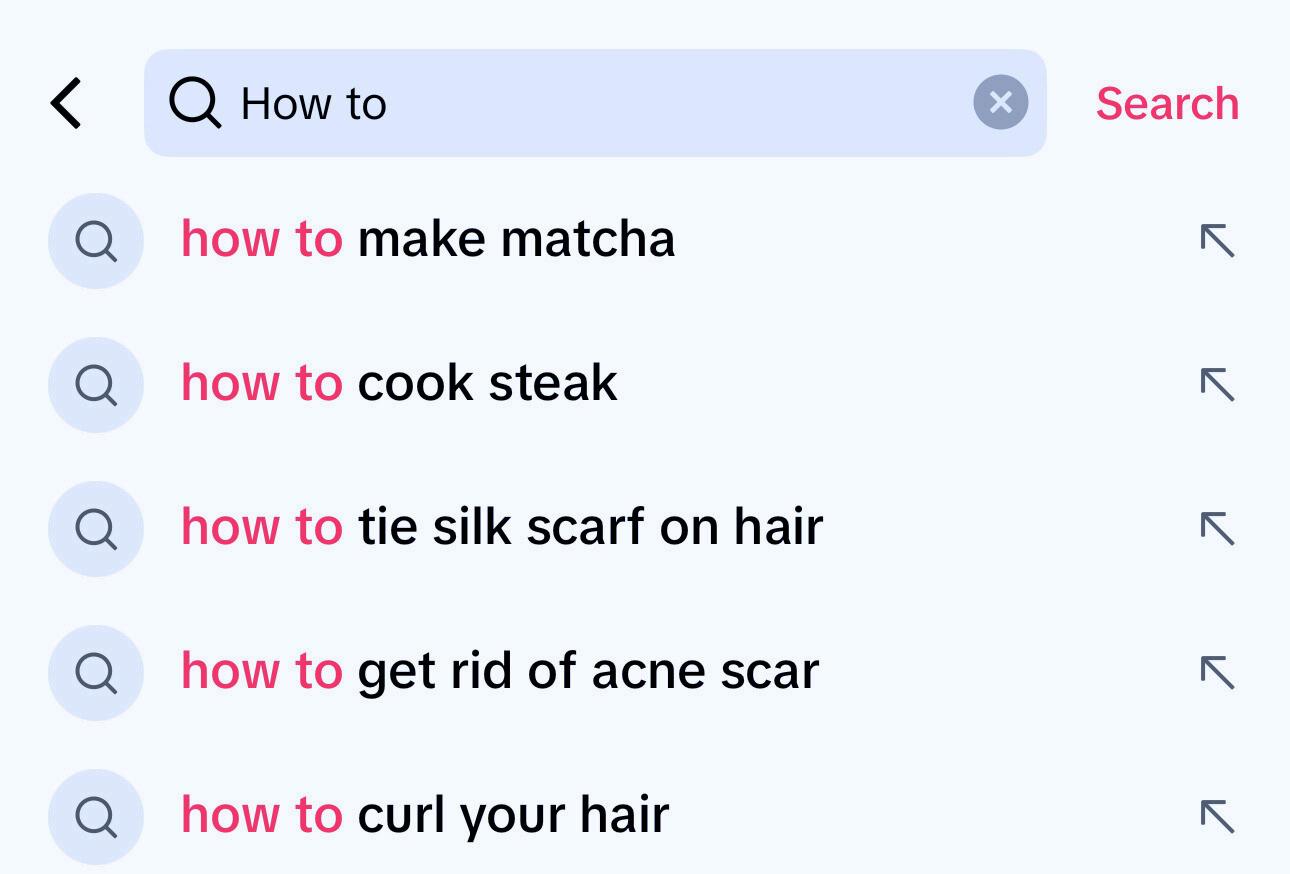




The Search Engine: Google, Who?
Suggested Results
What types of content do you like to consume on TikTok?
Nearly 80% of users said they use TikTok for educational or informational content. When TikTok was taken down, we lost a platform that redefined how we find and share information.
What types of content do you like to consume on TikTok?





Life (Raw Version)
Trending
TikTok THRIVES on real, authentic content. While there’s the space for more polished content creators, a video of a person tooting has a higher chance of going mega viral.
“The content is so much more organic and relatable on TikTok.” -Stephanie
Social media can easily start to feel like a highlight reel of everyone’s life, and while there are the “5 to 9 before my 9 to 5” and “what I eat in a day” creators (can you tell what makes me feel bad about my daily habits?), there’s also
space for the people talking about living with anxiety, figuring out how to do “basic” things as an adult, and just being honest about the struggle. The algorithm knows who’s going to vibe with your content, which is why unhinged rants and “WTF am I doing?” moments pop off.

This shift toward authenticity is even shaping how brands show up on social media. Brands are trying to tap into that “unhinged” humor on TikTok because they know that’s what resonates.

Community and Connection
TikTok isn’t just about consuming content it’s about building communities. Whether it’s #BookTok, #FitTok, or niche fandoms, TikTok has created spaces where people can explore their passions, share knowledge, and connect with their people. Duets, stitches and comment threads hat no other platform can match, allowing ge i personal and encourage an interactive
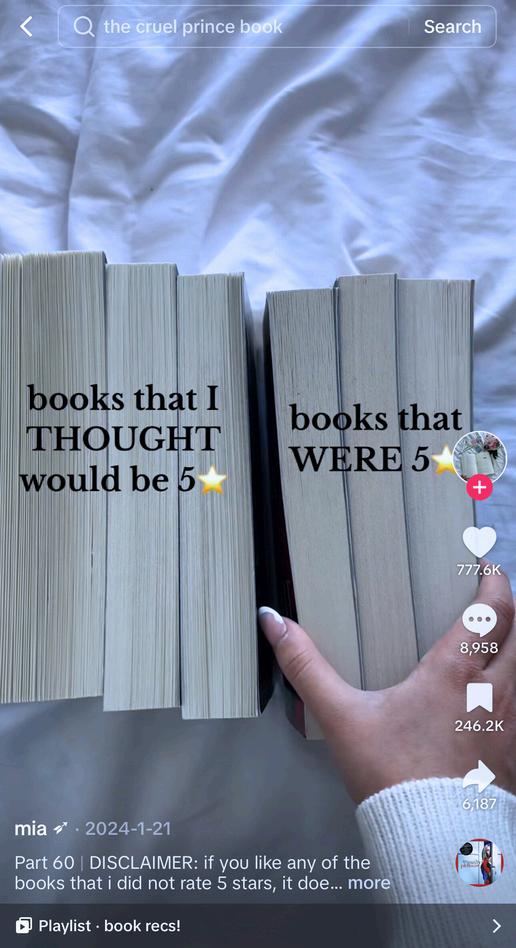

But for marginalized communities, this sense of belonging runs even deeper. You may like
“During covid 19 I had never felt more isolated and alone, on tiktok I found friends from all areas of the planet and created what I like to call an invisible community.“
- Claire



Results
for community and connection
Where Marginalized Voices Thrive
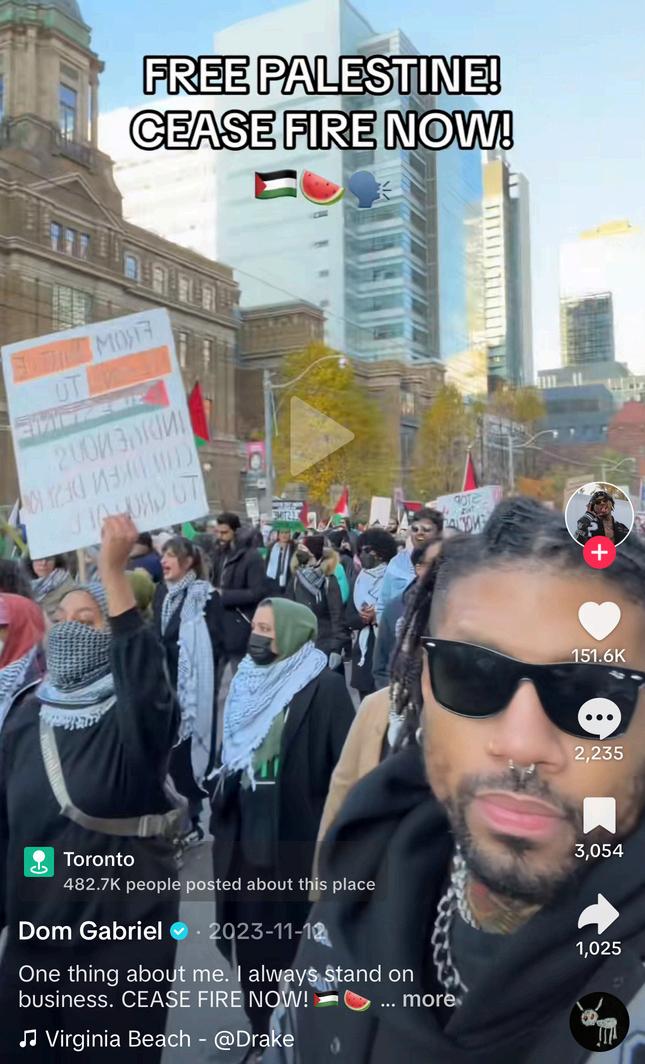
unity, TikTok has been especially significant. e can be our authentic and creative selves, celebrate our culture on our own terms. It has y our voices, preserve our history, and ive experiences that shape our community.”

TikTok has become a safe space where historically underrepresented voices can be real, share their stories, and build communities that reflect their lived experiences. While traditional media often erases or misrepresents marginalized voices, TikTok gives them the platform.
“I have been introduced to several communities that have furthered my information in things, allowed me to discover something about myself I would've never known, and given me the opportunity to meet and communicate with likeminded people.” -Alexandra
A TikTok ban means losing a platform where underrepresented voices can challenge dominant narratives and create real impact. Beyond being a place for connection, it’s where change happens.


TikTok As A News Source: The People’s Platform
Unlike traditional media outlets, which often filter information through political or corporate TikTok allows users to share unfiltered (or stories that mainstream platforms either m deliberately ignore.
“TikTok has allowed us to share news that isn’t being shared on traditional outlets and allowed creators to build a platform that they may not have on other social media sites” -Toni

From global movements like #BlackLivesMatter and #FreePalestine to hyper-local injustices, TikTok has amplified voices and perspectives. It’s wh time updates on protests, humanitarian cri systemic injustices directly from the people experiencing them. And this transparency is exactly why Gen Z trusts TikTok in a way that doesn’t exist for mainstream media.
TikTok’s become a vital tool for organizing, informing, and mobilizing communities. Movements that once relied on traditional media to gain traction can now spread organically, allowing for decentralized activism that disrupts the status quo and that’s the real tea on why it’s a threat to the U.S. (allegedly).


TikTok As A News Source:
The
People’s Platform
TikTok’s become a vital tool for organizing, informing, and mobilizing communities. Movements that once relied on traditional media to gain traction can now spread organically, allowing for decentralized activism that disrupts the status quo and that’s the real tea on why it’s a threat to the U.S. (allegedly).
“TikTok has been instrumental in disseminating news and current events. I can't speak for citizens of other countries, but at least in the US I'm able to get first hand accounts of news without the US capitalist/influential elite filter. The ruling class of corporations and wealthy elite can't control the way stories unfurrle, or even what kinds of stories are recommended to people...” -Shelby
When TikTok was temporarily banned, it wasn’t just about losing access to viral videos, it was about losing a lifeline to information and activism. The ban reminded us just how powerful TikTok is as a tool for change, and why protecting these types of spaces matters more than ever.
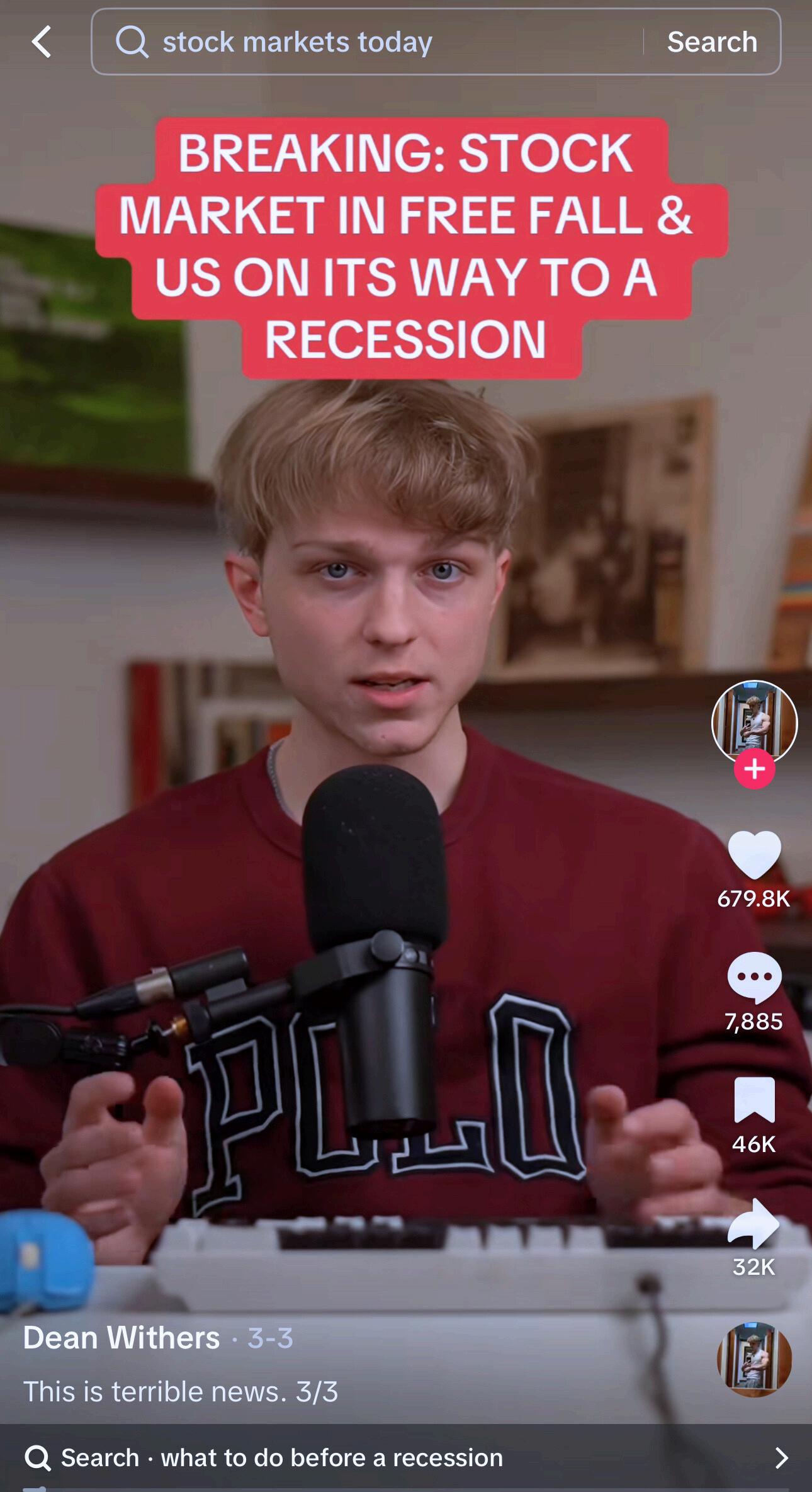


The TikTok Ban: A Wake-Up Call
Before the ban, 65.3% of respondents considered TikTok a trustworthy platform. After, that number plummeted to 32.7%. And a big reason for that dip?
The weird shoutout TikTok gave to Trump when the app was restored.
Prior to the ban, did you consider TikTok a trustworthy platform?
After the ban, do you consider TikTok a trustworthy platform?
At first, there was a sense of pride in how TikTok resisted political interference, and Gen Z admired that the platform didn’t cave. 73.5% of respondents believed the ban was more about politics than security, while 56.8% saw it as an example of government overreach. TikTok’s ability to maintain its independence made Gen Z feel like it was on their side.


The TikTok Ban: A Wake-Up Call
“The “thank you president Trump” message really made me feel strange.” -Evan
“TikTok feels somewhat tainted by what feels like a political plot and frames Trump as a savior...”
-Kendra
But then… TikTok switched up. When the app was restored, they gave a public nod to Trump. That unexpected endorsement left a bad taste, making Gen Z question where TikTok’s loyalties actually lie. For Gen Z, trust is everything. If TikTok continues cozying up to political figures, that trust will erode even further.

So, is this the moment for another platform to swoop in and snatch the crown? (Sit down, Elon and Mark. Y’all aren’t even in the running.)

Beyond TikTok & The Future of Social Media Marketing
TikTok’s success wasn’t just about the format—it was about the community it nurtured. A TikTok ban doesn’t erase that need for community. Gen Z will keep searching for that same sense of belonging, and brands that simply follow them from platform to platform may miss the bigger picture.
The brands that win will be the ones that actually become the community-builders themselves. By investing into becoming community builders, brands can stay relevant no matter where the digital landscape shifts.
“Replacing TikTok isn’t just about creating another video-sharing app. It’s about building a space that empowers users, protects their voices, and ensures that historically overlooked communities are fully valued and respected.” -
Hayley Taylor
One thing’s for sure: TikTok or not, Gen Z will continue to shape the future of digital culture. And for brands looking to stay relevant, understanding that culture and the platforms that fuel it—is more important than ever.





